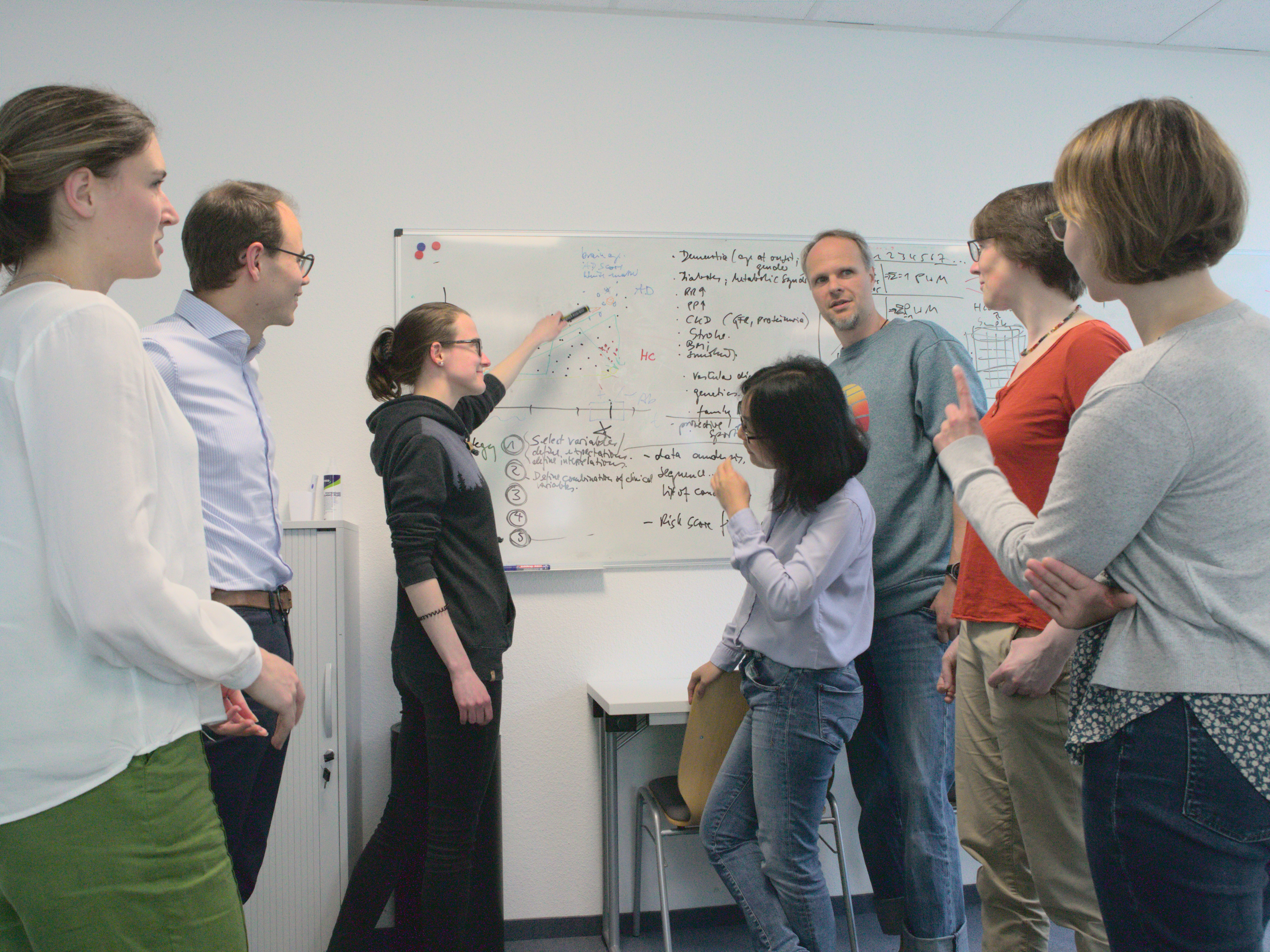Circulating cardiovascular biomolecules
Advanced mathematical solutions for circulating cardiovascular biomolecules

The discovery of troponin as a reliable marker to diagnose myocardial infarction brought blood-based, circulating biomolecules into the focus of cardiovascular medicine. Circulating cardiovascular biomolecules, i.e. metabolic products measurable in the blood that are secreted by cardiac muscle cells or associated tissues, can reflect biological processes in the heart. Today, due to technical advances, circulating biomolecules have become measurable at high speed and throughput, as well as high precision, in everyday clinical practice. In addition, omics-methods which are available in the research context allow to investigate all steps between genetics and protein function.
The Cross-Disciplinary-Lab "Advanced mathematical solutions for circulating cardiovascular biomolecules" (AMSCCB) will integrate the relative concentrations and changes of multiple interacting circulating biomolecules over time with available omics information and biological knowledge ("knowledge graph embedding") to outperform classical models for prediction of cardiovascular outcomes.
The AMSCCB lab will be established at the Hamburg House Of Computing and Data Science (HCDS) from October 2023 onwards. In particular, time series of biomolecules, multicollinearity between biomolecules and with clinical features, as well as other specific properties of circulating biomolecules (production (site), secretion, metabolism, excretion) will be methodologically addressed. Content-wise, the AMSCCB-CDL aims to enhance understanding of the interface of the common diseases atrial fibrillation and heart failure. Our overarching goal is to implement more precise, individualized prognostication and to develop strategies based on objectively ascertainable measurements - primarily circulating cardiovascular biomolecules - that allow optimal prioritization and therapy stratification of these multimorbid patients.
Employees:
Christoph Al-Taie, University Center of Cardiovascular Sciences, University Medical Center Hamburg-Eppendorf
Linda Krause, Institute of Medical Biometry and Epidemiology, University Medical Center Hamburg-Eppendorf
PhD-Studenten:
Silke van Elferen
Associated Institutes:
Department of Cardiology, University Heart & Vascular Center, University Medical Center Hamburg-Eppendorf, Prof. Dr. Paulus Kirchhof
CoSyBio Institute for Computational Systems Biology at University of Hamburg, Prof. Dr. Jan Baumbach
Institute of Medical Biometry and Epidemiology, University Medical Center Hamburg-Eppendorf, Prof. Dr. Antonia Zapf
Principal Investigators:
Julius Obergassel, MD, Department of Cardiology, University Heart & Vascular Center, University Medical Center Hamburg-Eppendorf
Benedikt Schrage, MD, PhD, FESC | Department of Cardiology, University Heart & Vascular Center, University Medical Center Hamburg-Eppendorf
Olga Zolotareva, CoSyBio Institute for Computational Systems Biology at University of Hamburg
Olga Tsoy, CoSyBio Institute for Computational Systems Biology at University of Hamburg
